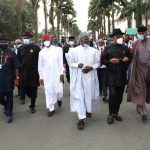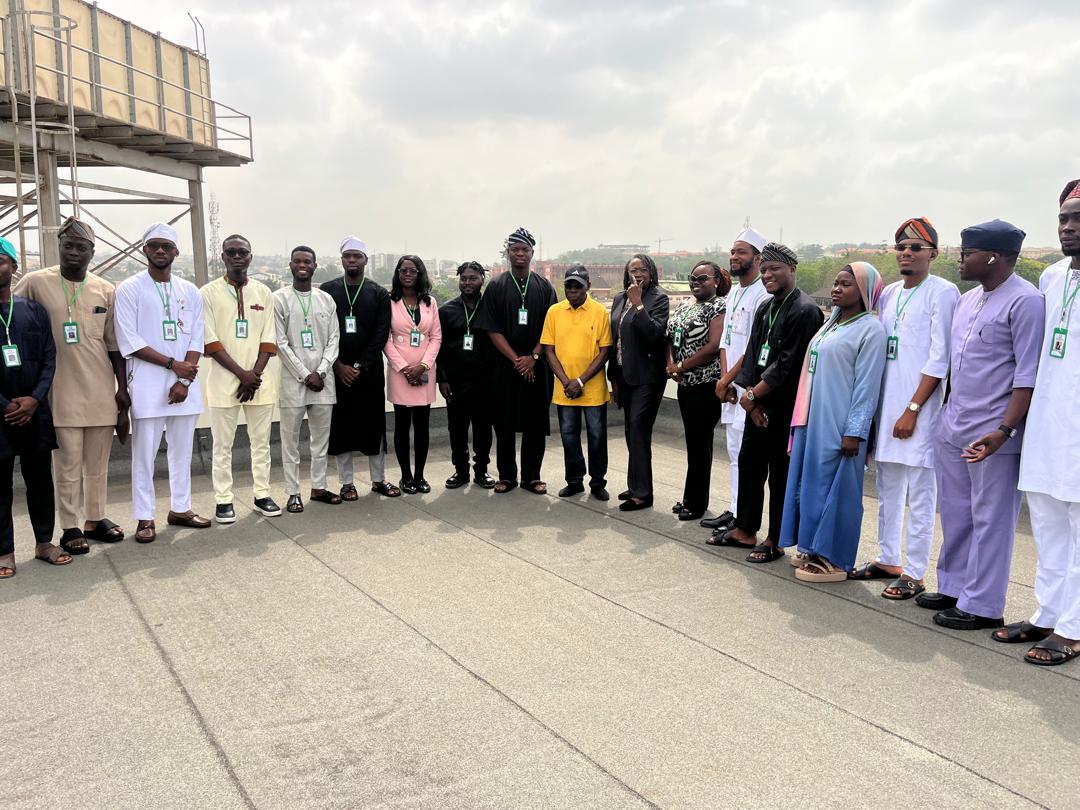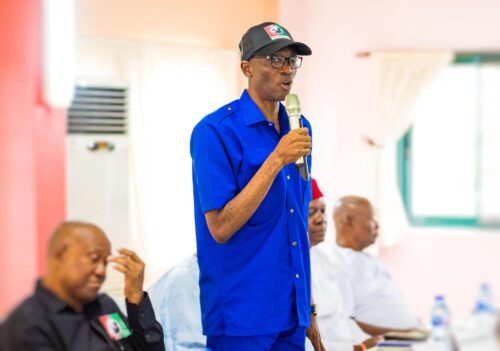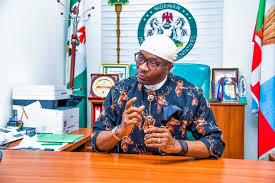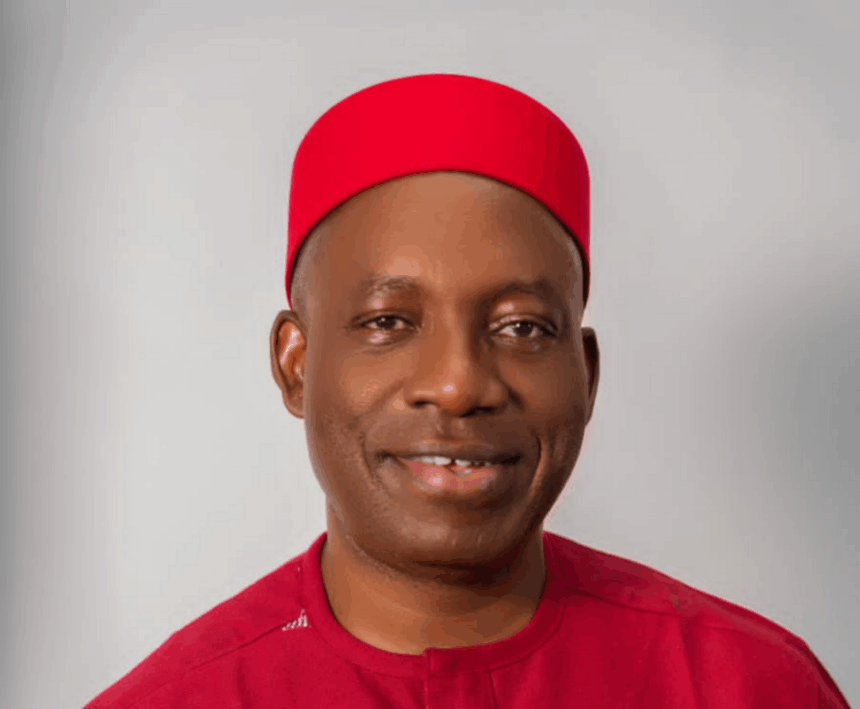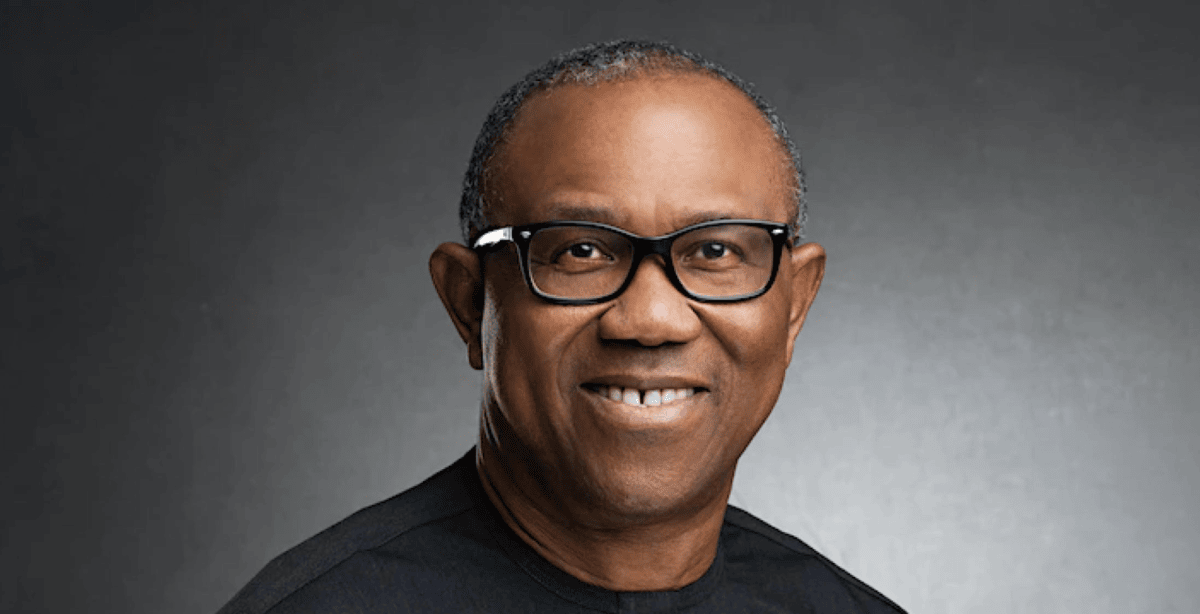Opinion: Nigerian Democratisation and internal party contest for leadership

By Salihu Moh.Lukeman
It was the American journalist and political commentator, Fareed Zakaria, in the book The Future of Freedom: Illiberal Democracy at Home and Abroad who argued that democratisation everywhere is shifting power downward.
According to him, the process of democratisation goes far beyond politics and result in hierarchies “breaking down, closed systems are opening up, and pressures from the masses are now the primary engine of social change.
Democracy has gone far from being a form of government to a way of life.”
The role of political parties all over the world in facilitating the shift of power to the people (downwards) is quite remarkable.
Both within parties and at wider societal levels, considerable pressure from ordinary citizens is influencing the change of leaders, in most cases as a result of the defeat of powerful individuals and political establishments.
In most cases, leaders and political establishments, including parties become more prone to electoral defeats when they resist or block internal pressures for leadership change.
The electoral victory of APC in 2015, for instance, could be partly explained based on the refusal of PDP leadership to recognise and respect the yearnings of party members and leaders.
It was the inability to respect internal yearnings for change that produced the splinter group of New PDP, which eventually joined the merger that produced the APC in 2013.
Combined with other factors outside the PDP, especially the ability of leaders of the opposition parties under the defunct Action Congress of Nigeria (ACN), All Nigeria Peoples’ Party (ANPP) and Congress for Progressive Change (CPC) to negotiate a successful political merger, which bolster public confidence, the APC electoral victory of 2015 was resoundingly accomplished.
Having gained some political advantages as a result of being organised, the old members of the New PDP would appear to have taken all the necessary steps as a block to contest the hegemony of other blocks from the old legacy parties that merged to form the APC.
This was more apparent during the contest that produced the leadership of the 8th National Assembly.
Combined with other internal factors within the APC that disorganised leaders of APC, it is to the credit of members and leaders of the New PDP who led the rebellion against the choice of the APC leadership resulting in the emergence of the Sen. Bukola Saraki and Hon. Yakubu Dogara leadership in the 8th Senate and House of Representatives respectively.
Whichever way anyone choses to analyse the events of 2015 in Nigerian politics, the reality was that culmination of political developments between 2011 and 2015 broke down the hierarchy of PDP leadership, opened up range of democratic possibilities in the emergence of new political leaders in the country.
Part of the challenge facing Nigerian politics today is the difficulty in institutionalising and mainstreaming political competition within our parties.
Most of our political leaders are highly resistant to competition. For them, competition should be mainly reduced to endorsement of their leadership and their decisions, including the leadership choices they make.
This reality has created a situation of permanent internal rebellion within our parties.
Anyone, interested in contesting or competing for leadership in any of our parties, must be ready to organise rebellion, especially, if such an aspiring contestant is not part of the inner caucus of current leaders.
Without doubt, this reality has made the context of Nigerian democratisation process to legitimately become over concentrated on issues of electing political leaders into government, especially as President or Governors.
The public understanding and appreciation of all the dynamics and processes of democratisation is more about who will emerge as candidates for these positions in our respective political parties.
With it, space for political competition and contestations are limited to analyses of issues of allegiances, loyalties or associations with prospective candidates, or absence of it, which may have been responsible for specific events triggering opposition to decisions of our leaders in our political parties.
Consequently, we become highly fixated about analysing problems facing our democracy, poor leadership and lack of political accountability, corruption and lack of development, and so on and so forth.
These are very valid issues worthy of every democratic attention.
However, such attention must be given side by side with the need to strengthen capacity of institutional political structures to facilitate competition, especially around the emergence of political leaders.
Inability to pay attention to issues of strengthening capacity of political institution to facilitate leadership contest makes citizens to recklessly dismiss and condemn leaders with hardly any clear political demand requiring any response from our political leaders.
And on the other hand, our leaders continue on the political trajectory of intolerance, ignoring and blocking any demand or competition both within the party and at wider political level.
Whether in APC or in other parties, including the PDP, the dominant perspective is to analyse internal dynamics in the context of so-called prospective candidates.
Legitimate political demands, including grievances of party leaders and members are reduced to projections of advantages of prospective candidates and so-called opposition to political leaders within our parties.
This attest to the Weberian postulation that “very frequently the “world images” which have been created by “ideas” have, like switchmen, determined the tracks along which action has been pushed by the dynamic of interest.”
Every position, conduct or opinion is either for or against some political leaders in favor of socalled prospective candidates.
This is the unfortunate reality, which has greatly weakened capacity of our political leaders and our institutions, including political parties to be able to facilitate or resolve political challenges.
Is it possible to have democracy without political competition? In other words, is it possible to have election without contest?
These are old questions, which made the American political scientist, Francis Fukuyama in his controversial book, The End of History and the Last Man to argue that “there is no democracy without democrats.”
The absence of competition in Nigerian democracy, especially in our political parties is responsible for so many unpredictable political circumstances and is making political leader both unsure and insecure.
This has basically reduced Nigerian politics to a game of conquest. A major attribute is that political leaders are conquerors, while party members and ordinary citizens are the would-be conquered.
Arguably, while in other parties, including the PDP, this is a well-established order, in APC, it is being highly contested.
This is because since the emergence of APC, apart from the personality of President Muhammadu Buhari, no leader can be sure of emerging as a candidate of the party for any election.
In the case of President Buhari, he has such a personal blessing that made him to attract at least 12 million votes in all the elections he contested since 2003.
No leaders, whether in APC or out of APC can claim to be in control of 5 million votes. The fact that President Buhari is serving his last term, require some strategic succession arrangement within the APC, especially in order to guarantee the retention of all the electoral advantages.
With President Buhari clearly out of the race for the position of Presidential candidate of APC in 2023, there is clearly a potential for a big internal contest in the party.
The question is whether any of the power blocks within the party will take step to block internal contest and therefore emerge as the conqueror.
In which case, the issue is really whether the APC leadership will allow the process of democratisation to ensure that leadership emergence both within the party and at wider political levels are determined based on the choices of party members and citizens.
Most of the public speculations around internal dynamics in APC today is basically informed by some strategic political expectations and leadership permutations. Unfortunately, a lot of these permutations seems to be oriented based on an approach that seek to strengthen the capacity of some leaders within APC to conquer the structures of the party.
When members and leaders of the party, for instance, demand that issues of membership register of the party are resolved such that the party is able to have a credible and verifiable membership register, it is being interpreted to mean that some leaders of APC want to take over the party to promote their political ambition for 2023.
Take over from who? Does it mean that those who claim to be in control of APC now have any credible and verifiable membership records?
Why are they not able to make such records accessible to all party members and leaders?
There is no short cut to democratisation. Internal contests for leadership based on transparent process are irreducible minimum.
Once any party cannot guarantee the existence of credible and verifiable membership records, which is up to date such a party cannot serve as a vehicle for the emergence of democratic leadership.
This is the underlying factor facilitating all the current contestations going on in APC. Such contestations are at best marginal in other political parties including the PDP.
This means that while in other parties established leaders have conquered all semblances of democratic openings for any possible exercise of power by ordinary party members, in APC, no leader can impose himself/herself as the conqueror.
READ ALSO: Opinion: Democracy, leadership, and the future of Nigeria
Without doubt, this comes with a lot of challenges, which include the question of how the absence of a conqueror in APC would guarantee democratic contest, for instance.
Would fellow contestants respect the outcome of internal contest for leadership? Beyond the absence of a conqueror-leader, there is the need to strengthen internal party rules.
Issues of discipline and leadership as well as membership orientation need to be taken seriously.
This would require a code of conduct, which should serve as a byelaw to facilitate internal democratic contest within the party, spelling out dos and don’ts.



